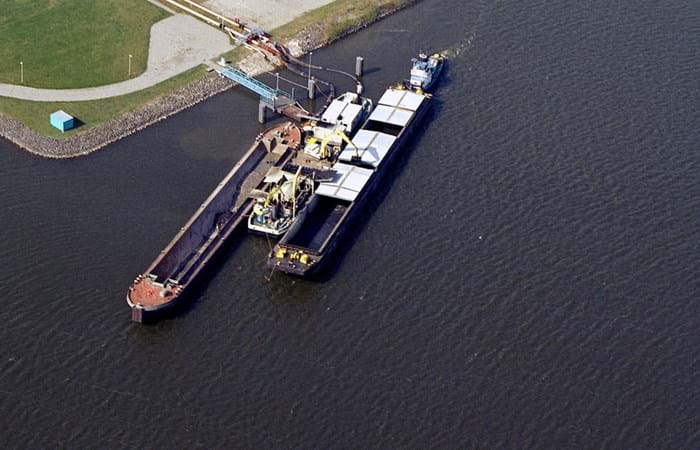Many port areas requiring dredging works have been forced to put projects on hold due to the absence of an environmentally safe solution for the disposal or processing of contaminated sediments. While this is a global problem, the availability of central, large-scale repositories in the Netherlands has transformed disposal economics at the national level. Nevertheless, the high level of debris encountered during the dredging of ports and harbors remains a major challenge to all contractors. The hydraulic transport of sediments with a high debris content is impossible.
Boskalis, however, has developed a hybrid dredging system combining precision dredging of contaminated soils with a robust, integrated system to sieve out debris. After sieving, sediments can be hydraulically transported, in the conventional way, to a processing plant or settlement lagoons. Sand separation then takes place, prior to disposal to repositories such as Ketelmeer, one of the country’s largest 'Confined Disposal Facilities' (CDFs).
